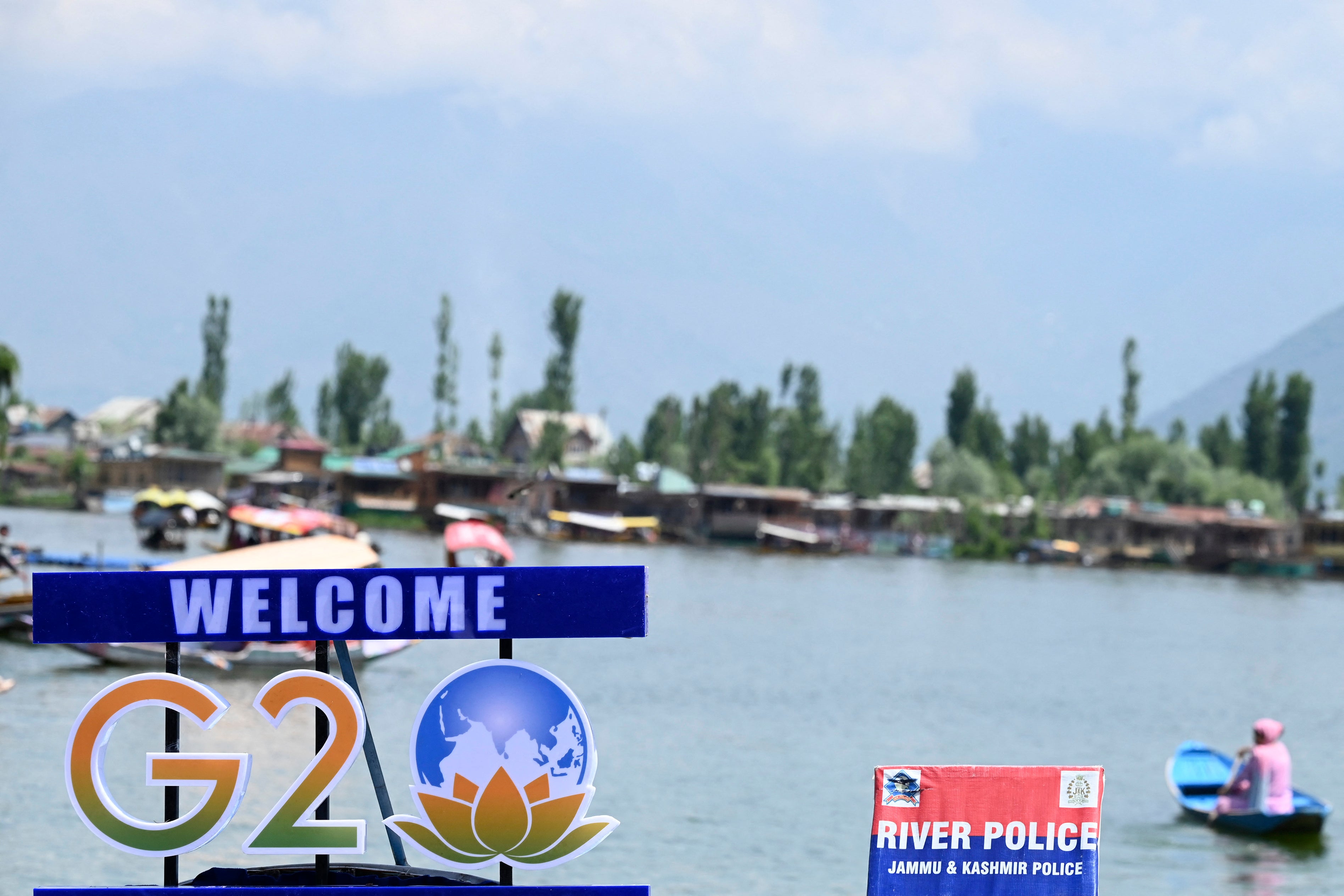China ‘firmly opposes’ G20 meeting in ‘disputed territory’ Kashmir, says will skip it
Countering Beijing’s objection to G20 event invite, New Delhi says it is ‘free to hold meetings on its own territory’

China marked its firm rejection of India’s invitation for the G20 tourism summit in the Himalayan territory of Kashmir, stating that it is a “disputed territory” on Friday.
Foreign ministry spokesperson Wang Wenbin said: “China is firmly opposed to holding any kind of G20 meetings in disputed territory, and will not attend such meetings.”
Countering Beijing’s objection to the invite, New Delhi has said that it is “free to hold meetings on its own territory”.
Peace and tranquillity on the frontline are essential to India for its effort to maintain normal ties with its Asian neighbour, it added.
New Delhi is the chair of G20 this year by rotation and is organising a chain of meetings with its allies across the country leading to the final event of the summit in the capital city in September.
Srinagar, the summer capital of Jammu and Kashmir, will host a meeting of the tourism working group for G20 members between 22 and 24 May.
But China, Turkey and Saudi Arabia had not registered for the event till Friday evening. The latter countries have also not issued any statement to cite reasons for their absence from the G20 meet.
Other member nations of the group like Russia, France, Germany, Italy, the US, the UK, Japan, South Korea and the European Union among others have signed up for the three-day event.
India has also extended an invite to guest countries and several international organisations from Bangladesh, Egypt, Mauritius, Netherlands, Nigeria, Oman, Singapore, Spain and the UAE.
India and China have repeatedly clashed in the Himalayan sector’s Jammu and Kashmir and the union territory of Ladakh along the shared border, also resulting in the deaths of their troops over the bloodied skirmishes.
At least 20 Indian soldiers and four Chinese soldiers died in the deadly hand-to-hand clashes in the Karakoram mountains in the Galwan Valley in the Ladakh region in June 2020, sparking major tensions between the two Asian giants.
Both India and China stationed tens of thousands of troops armed with artillery, tanks and fighter jets along the Line of Actual Control through 2020 and 2021.
India and China are separated by the Line of Actual Control in the west stretching from Ladakh to the eastern Indian state of Arunachal Pradesh over which China has claimed control.
India and China also fought a deadly war over the border in 1962.
In a separate clash in December last year, soldiers from both sides came to blows again at a different disputed border in India’s eastern Arunachal Pradesh state, resulting in minor injuries on both sides.
This comes as Indian prime minister Narendra Modi left for Tokyo for the G7 summit on Friday.
A top envoy from Japan to India has underlined that Mr Modi is expected to explain to the other leaders from G7 what he as the “voice of the Global South” wants to prioritise on the agenda for the G20 summit in terms of global challenges including food security.
Join our commenting forum
Join thought-provoking conversations, follow other Independent readers and see their replies
Comments




Bookmark popover
Removed from bookmarks